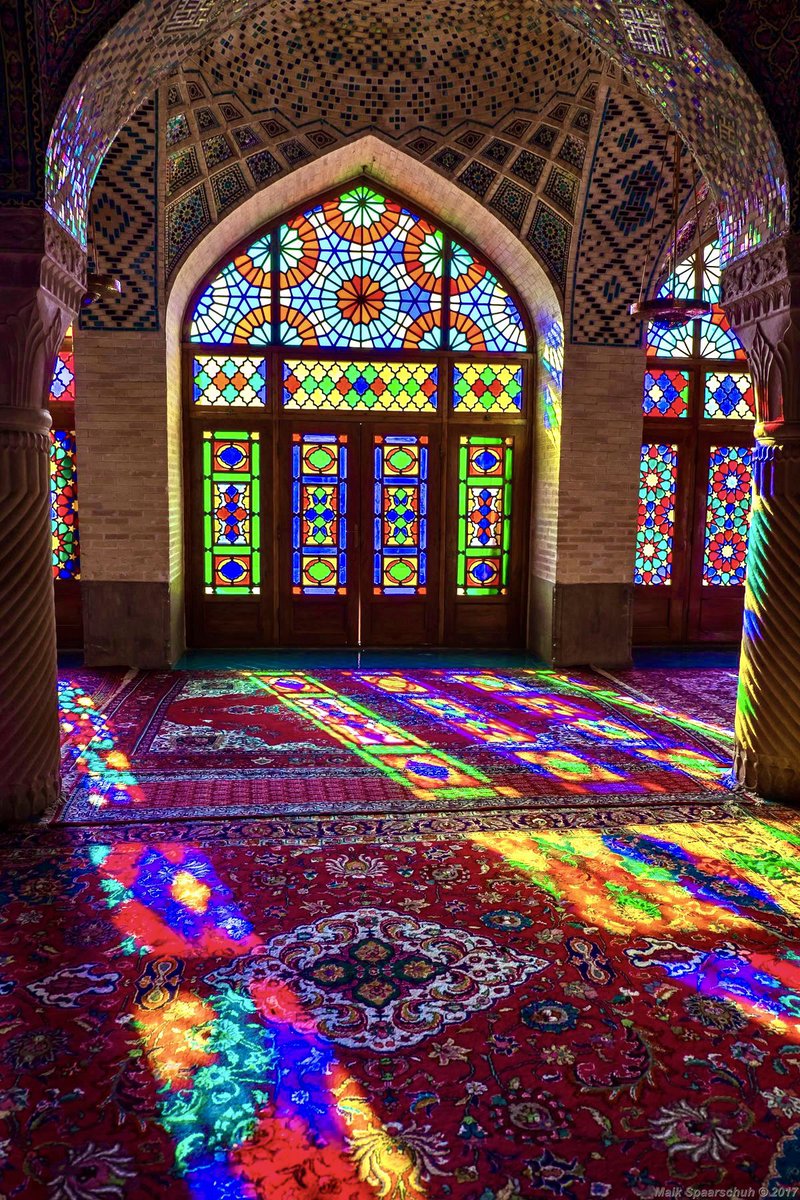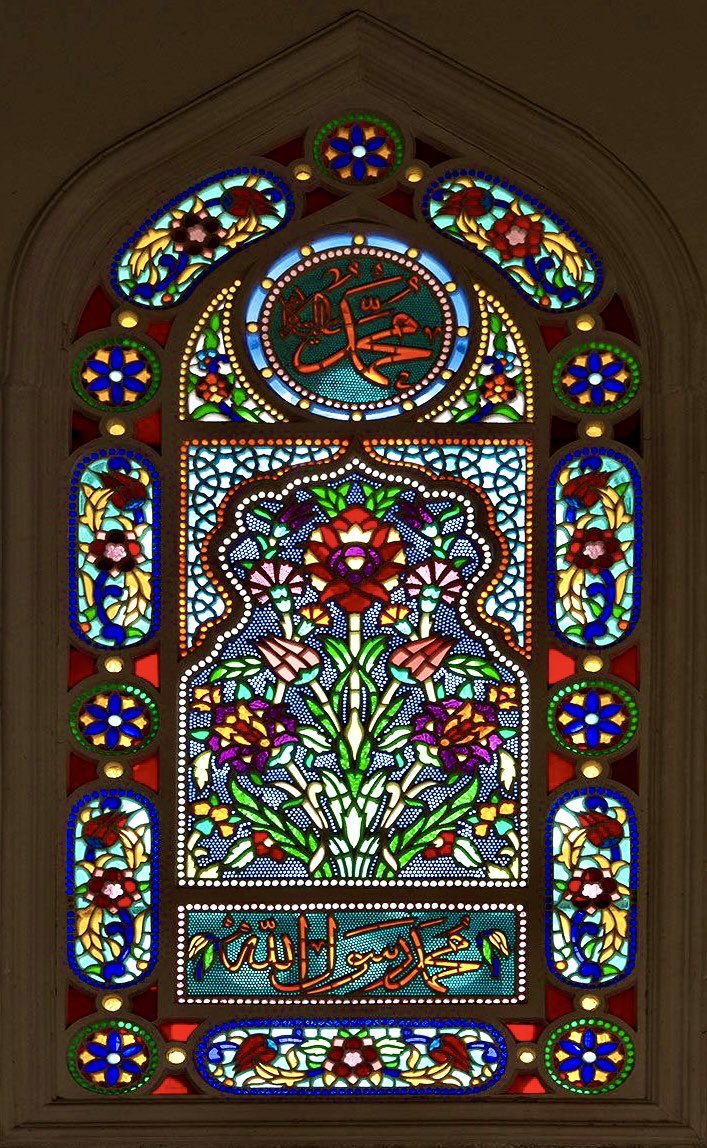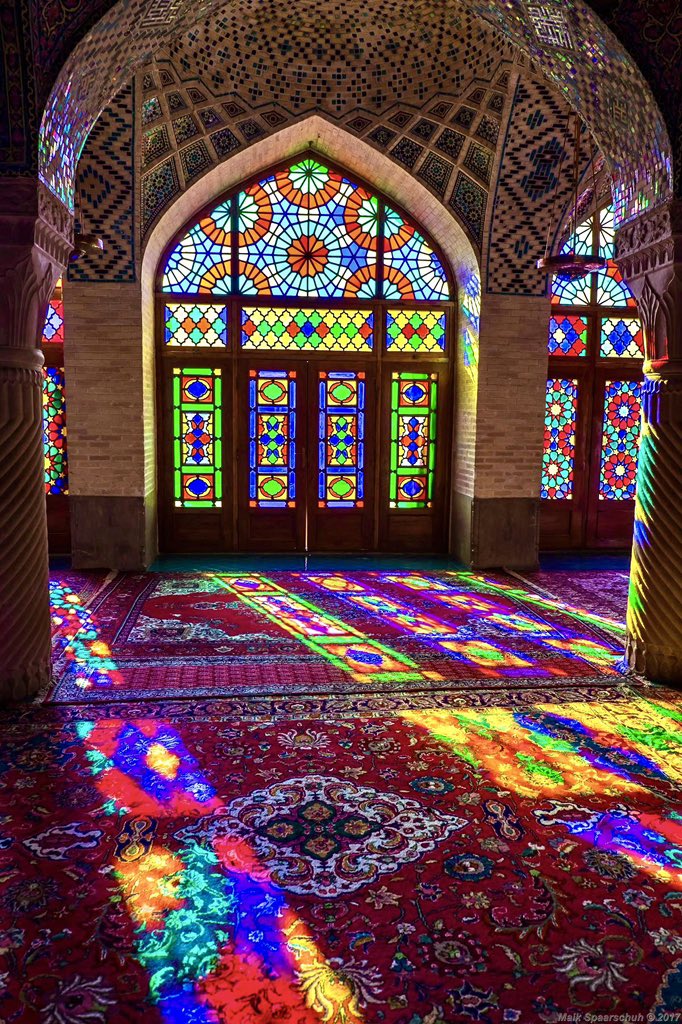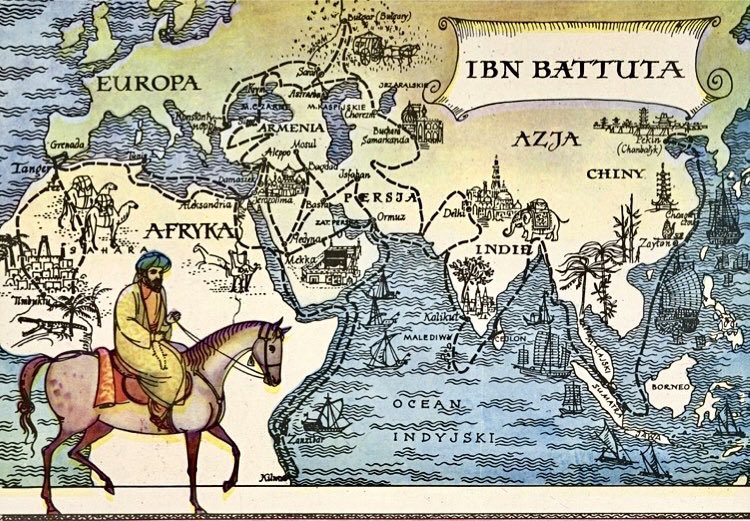May the 4th be with you!
For #StarWarsDay here is the awesome work of @_Muratpalta who illustrates iconic movies in Ottoman miniature style.
‘Ottoman Star Wars’ is one of his most renowned works #MayThe4thBeWithYou
A thread on @_Muratpalta Ottoman miniature take on movies…
For #StarWarsDay here is the awesome work of @_Muratpalta who illustrates iconic movies in Ottoman miniature style.
‘Ottoman Star Wars’ is one of his most renowned works #MayThe4thBeWithYou
A thread on @_Muratpalta Ottoman miniature take on movies…

1/ Willy Wonka and The Chocolate Factory, Ottoman Miniature Style @_Muratpalta
A 1971 fantasy film which tells the story of a poor child named Charlie Bucket who, after finding a Golden Ticket in a chocolate bar, visits Willy Wonka's chocolate factory with four other children
A 1971 fantasy film which tells the story of a poor child named Charlie Bucket who, after finding a Golden Ticket in a chocolate bar, visits Willy Wonka's chocolate factory with four other children

2/ Scarface, Ottoman Miniature Style @_Muratpalta
As you probably guessed, this work depicts the final moments of Scarface (1983), where Tony Montana takes revenge on a team of assassins who have infiltrated his lavish compound
As you probably guessed, this work depicts the final moments of Scarface (1983), where Tony Montana takes revenge on a team of assassins who have infiltrated his lavish compound
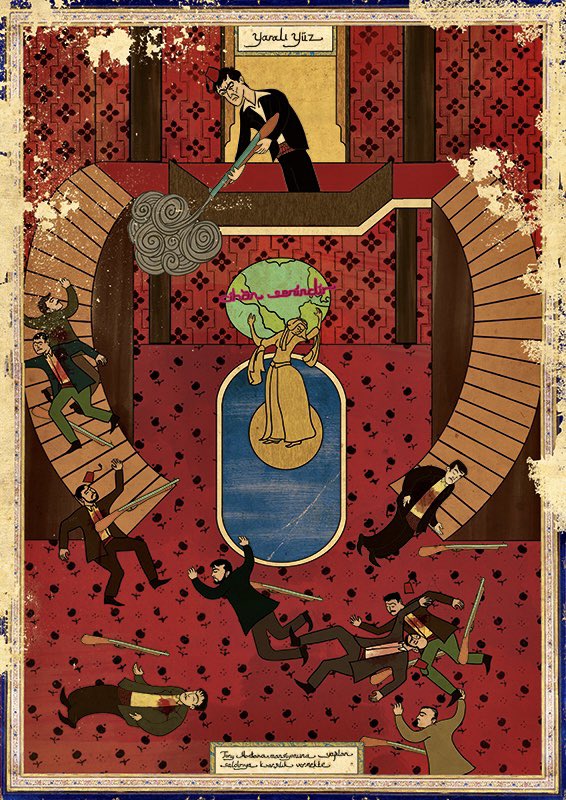
3/ Ghostbusters, Ottoman Miniature Style @_Muratpalta
Ghostbusters is a 1984 American supernatural comedy film about three eccentric parapsychologists who start a ghost-catching business in New York City. This classic scene features Marshmallow Man
Ghostbusters is a 1984 American supernatural comedy film about three eccentric parapsychologists who start a ghost-catching business in New York City. This classic scene features Marshmallow Man

4/ Godfather, Ottoman Miniature Style @_Muratpalta
A compendium of Godfather scenes, a regal Don Corleone listens to supplicants, as Jack Woltz, in the bottom left-hand corner, finds his prized stallion’s severed head in his bed
A compendium of Godfather scenes, a regal Don Corleone listens to supplicants, as Jack Woltz, in the bottom left-hand corner, finds his prized stallion’s severed head in his bed

5/ Batman, The Dark Knight, Ottoman Miniature Style @_Muratpalta
The Dark Knight is a 2008 superhero film based on the DC Comics character Batman, the film is the second installment of Nolan's The Dark Knight Trilogy and a sequel to 2005's Batman Begins
The Dark Knight is a 2008 superhero film based on the DC Comics character Batman, the film is the second installment of Nolan's The Dark Knight Trilogy and a sequel to 2005's Batman Begins

6/ The Shining, Ottoman Miniature Style @_Muratpalta
The Shining is a classic 1980 psychological horror film produced and directed by Stanley Kubrick and co-written with novelist Diane Johnson. The film is based on Stephen King's 1977 novel of the same name.
The Shining is a classic 1980 psychological horror film produced and directed by Stanley Kubrick and co-written with novelist Diane Johnson. The film is based on Stephen King's 1977 novel of the same name.

7/ Avatar, Ottoman Miniature Style @_Muratpalta
Avatar (2009) is an epic science fiction film by James Cameron A paraplegic Marine dispatched to the moon Pandora on a unique mission becomes torn between following his orders and protecting the world he feels is his home.
Avatar (2009) is an epic science fiction film by James Cameron A paraplegic Marine dispatched to the moon Pandora on a unique mission becomes torn between following his orders and protecting the world he feels is his home.

8/ Inception, Ottoman Miniature Style @_Muratpalta
Inception is a 2010 science fiction action film starring Leonardo DiCaprio as a professional thief who steals information by infiltrating the subconscious of his targets.
Inception is a 2010 science fiction action film starring Leonardo DiCaprio as a professional thief who steals information by infiltrating the subconscious of his targets.

9/ Titanic, Ottoman Miniature Style @_Muratpalta
Titanic is a 1997 American epic romance & disaster film by James Cameron. Incorporating both historical & fictionalized aspects, it is based on accounts of the sinking of the RMS Titanic, & stars Leonardo DiCaprio & Kate Winslet
Titanic is a 1997 American epic romance & disaster film by James Cameron. Incorporating both historical & fictionalized aspects, it is based on accounts of the sinking of the RMS Titanic, & stars Leonardo DiCaprio & Kate Winslet

10/ The Lion King, Ottoman Miniature Style @_Muratpalta
The Lion King is a 1994 animated film produced by Walt Disney. It tells the story of Simba who is to succeed his father, Mufasa, as King of the Pride Lands. This is an iconic scene of Simba’s birth presentation by Rafiki
The Lion King is a 1994 animated film produced by Walt Disney. It tells the story of Simba who is to succeed his father, Mufasa, as King of the Pride Lands. This is an iconic scene of Simba’s birth presentation by Rafiki

11/ Pokémon The First Movie: Mewtwo Strikes Back, Ottoman Miniature Style, @_Muratpalta
A 1998 Japanese animated fantasy adventure film directed by Kunihiko Yuyama, the chief director of the Pokémon television series. It is the first theatrical release in the Pokémon franchise
A 1998 Japanese animated fantasy adventure film directed by Kunihiko Yuyama, the chief director of the Pokémon television series. It is the first theatrical release in the Pokémon franchise

12/ Kill Bill: Volume 1, Ottoman Miniature Style @_Muratpalta
A 2003 martial arts film by Quentin Tarantino. It stars Uma Thurman as the Bride, who swears revenge on a team of assassins & their leader, Bill, after they try to kill her & her unborn child. This is an iconic scene
A 2003 martial arts film by Quentin Tarantino. It stars Uma Thurman as the Bride, who swears revenge on a team of assassins & their leader, Bill, after they try to kill her & her unborn child. This is an iconic scene

13/ The Muppets, Ottoman Miniature Style @_Muratpalta
A 2011 comedy. devoted Muppet fan Walter, his human brother Gary & Gary's girlfriend Mary help Kermit the Frog reunite the disbanded Muppets, as they try to save the Muppet Theater from Tex Richman
A 2011 comedy. devoted Muppet fan Walter, his human brother Gary & Gary's girlfriend Mary help Kermit the Frog reunite the disbanded Muppets, as they try to save the Muppet Theater from Tex Richman

14/ Harry Potter & The Philosopher’s Stone, Ottoman Miniature Style @_Muratpalta
A 2001 fantasy film based on J. K. Rowling's 1997 novel of the same name. It follows Harry's first year at Hogwarts School of Witchcraft & Wizardry as he discovers that he is a famous wizard.
A 2001 fantasy film based on J. K. Rowling's 1997 novel of the same name. It follows Harry's first year at Hogwarts School of Witchcraft & Wizardry as he discovers that he is a famous wizard.

15/ Street Fighter, Ottoman Miniature Style @_Muratpalta
Street Fighter is a 1994 action film written and directed by Steven E. de Souza, based on the video game series of the same name
Street Fighter is a 1994 action film written and directed by Steven E. de Souza, based on the video game series of the same name

• • •
Missing some Tweet in this thread? You can try to
force a refresh


